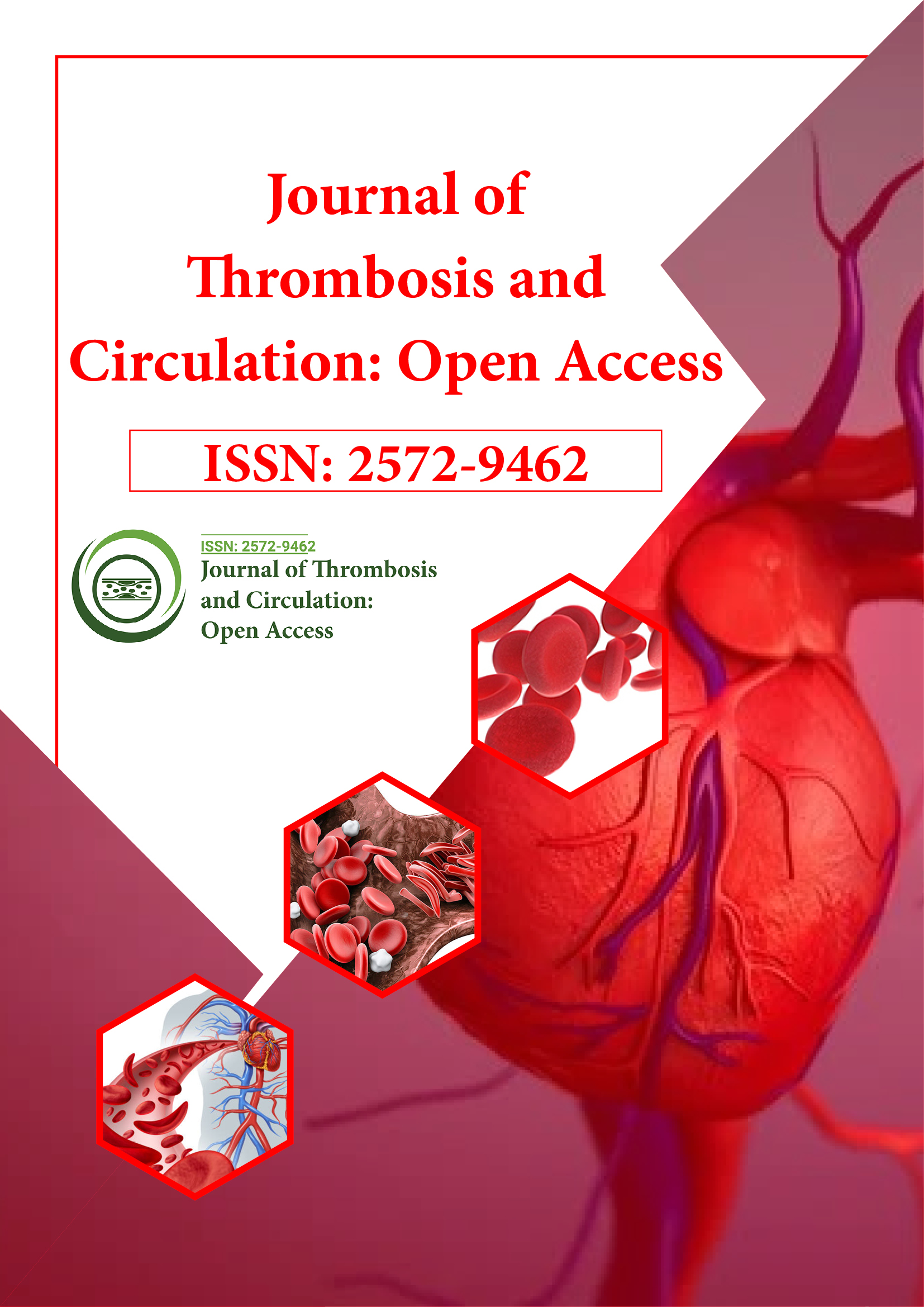Indexed In
- RefSeek
- Hamdard University
- EBSCO A-Z
- Publons
- Google Scholar
Useful Links
Share This Page
Journal Flyer

Open Access Journals
- Agri and Aquaculture
- Biochemistry
- Bioinformatics & Systems Biology
- Business & Management
- Chemistry
- Clinical Sciences
- Engineering
- Food & Nutrition
- General Science
- Genetics & Molecular Biology
- Immunology & Microbiology
- Medical Sciences
- Neuroscience & Psychology
- Nursing & Health Care
- Pharmaceutical Sciences
Opinion Article - (2024) Volume 10, Issue 2
Impact of Genetic Polymorphisms on Antithrombotic Therapy Efficacy
Pierre Jules*Received: 01-May-2024, Manuscript No. JTCOA-24-26417; Editor assigned: 03-May-2024, Pre QC No. JTCOA-24-26417 (PQ); Reviewed: 17-May-2024, QC No. JTCOA-24-26417; Revised: 24-May-2024, Manuscript No. JTCOA-24-26417 (R); Published: 31-May-2024, DOI: 10.35248/2572-9462.24.10.275
Description
Genetic polymorphisms can significantly influence the efficacy of antithrombotic therapy, which is crucial for preventing and managing thromboembolic disorders such as deep vein thrombosis, pulmonary embolism, and stroke. Antithrombotic therapy encompasses anticoagulants, antiplatelet agents, and fibrinolysis drugs. The inter-individual variability in response to these medications is partly attributed to genetic differences among patients, affecting drug metabolism, efficacy, and safety. Understanding these genetic polymorphisms can enhance personalized medicine, optimizing treatment efficacy and minimizing adverse effects.
One of the most studied genetic polymorphisms affecting antithrombotic therapy is in the cytochrome P450 (CYP) enzyme family, particularly CYP2C9 and CYP2C19. CYP2C9 metabolizes warfarin, a commonly used anticoagulant. Variants such as CYP2C92 and CYP2C93 result in reduced enzyme activity, leading to decreased warfarin metabolism. Patients with these polymorphisms require lower doses of warfarin to achieve therapeutic anticoagulation and are at a higher risk of bleeding complications if standard doses are administered. Genotyping for CYP2C9 variants before initiating warfarin therapy can guide dose adjustments, improving safety and efficacy.
CYP2C19 polymorphisms are significant in the context of Clopidogrel, an antiplatelet agent used to prevent arterial thrombosis in conditions like myocardial infarction and stroke. The CYP2C192 and CYP2C193 alleles result in reduced enzyme activity, leading to poor conversion of Clopidogrel into its active form. Patients with these alleles have a diminished antiplatelet response and an increased risk of adverse cardiovascular events. Genetic testing for CYP2C19 can help identify individuals who might benefit from alternative antiplatelet therapies, such as prasugrel or ticagrelor, which are not affected by CYP2C19 polymorphisms.
Another critical genetic factor is the VKORC1 gene, which encodes the vitamin K epoxide reductase complex, a target of warfarin. The VKORC1 -1639G>A polymorphism significantly affects warfarin sensitivity. Individuals with the A allele require lower doses of warfarin compared to those with the G allele due to increased sensitivity to the drug. Combining VKORC1 and CYP2C9 genotyping provides a more comprehensive approach to warfarin dosing, enhancing the precision of anticoagulant therapy.
Polymorphisms in the ABCB1 gene, encoding the P-glycoprotein drug transporter, also impact antithrombotic therapy. The ABCB1 3435C>T variant affects the absorption and distribution of several drugs, including dabigatran, a direct thrombin inhibitor. Patients with the TT genotype have higher plasma concentrations of dabigatran, increasing the risk of bleeding. Understanding ABCB1 polymorphisms can inform dose adjustments and monitoring strategies to balance efficacy and safety in antithrombotic therapy.
Genetic variations in platelet receptors, such as P2Y12 and GPIIb/IIIa, can also affect the response to antiplatelet drugs. Polymorphisms in the P2Y12 gene, which encodes the receptor targeted by Clopidogrel, can alter receptor function and drug binding, influencing treatment outcomes. Similarly, variants in the GPIIb/IIIa gene can affect the binding of glycoprotein IIb/ IIIa inhibitors, used in acute coronary syndromes. Identifying these polymorphisms can aid in selecting the most effective antiplatelet therapy for individual patients.
While the impact of genetic polymorphisms on antithrombotic therapy efficacy is well-documented, translating this knowledge into clinical practice poses challenges. Genetic testing can be costly and may not be readily available in all healthcare settings. Moreover, the interpretation of genetic test results requires expertise and integration with other clinical factors. However, as the field of pharmacogenomics advances and testing becomes more accessible, personalized antithrombotic therapy guided by genetic information Catches ability for improving patient outcomes.
Conclusion
Genetic polymorphisms play a crucial role in determining the efficacy and safety of antithrombotic therapy. Variants in genes such as CYP2C9, CYP2C19, VKORC1, ABCB1, and platelet receptors can influence drug metabolism, response, and risk of adverse effects. Integrating genetic testing into clinical practice can optimize antithrombotic therapy, leading to more effective and personalized treatment strategies. As research continues to uncover the genetic underpinnings of drug response, the potential for personalized medicine in managing thromboembolic disorders becomes increasingly attainable.
Citation: Jules P (2024) Impact of Genetic Polymorphisms on Antithrombotic Therapy Efficacy. J Thrombo Cir. 10:275.
Copyright: © 2024 Jules P. This is an open-access article distributed under the terms of the Creative Commons Attribution License, which permits
unrestricted use, distribution, and reproduction in any medium, provided the original author and source are credited.
